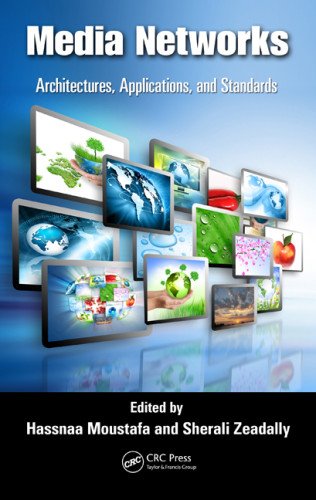

Most ebook files are in PDF format, so you can easily read them using various software such as Foxit Reader or directly on the Google Chrome browser.
Some ebook files are released by publishers in other formats such as .awz, .mobi, .epub, .fb2, etc. You may need to install specific software to read these formats on mobile/PC, such as Calibre.
Please read the tutorial at this link: https://ebookbell.com/faq
We offer FREE conversion to the popular formats you request; however, this may take some time. Therefore, right after payment, please email us, and we will try to provide the service as quickly as possible.
For some exceptional file formats or broken links (if any), please refrain from opening any disputes. Instead, email us first, and we will try to assist within a maximum of 6 hours.
EbookBell Team

4.7
16 reviewsA rapidly growing number of services and applications along with a dramatic shift in users’ consumption models have made media networks an area of increasing importance. Do you know all that you need to know?
Supplying you with a clear understanding of the technical and deployment challenges, Media Networks: Architectures, Applications, and Standards covers media networks basics, architectures, protocols, standards, specifications, advanced audiovisual and multimedia services, and future directions. Focusing on video and audio-visual services, it provides wide-scale reference on media networks and the audiovisual domain.
The book investigates the different network architectures along with their related protocols and standards. It examines the different digital TV technologies as well as their deployment architectures. Illustrating the role of network operators, service providers, content providers, and manufacturers, this timely reference is divided into three parts:
The book considers emerging media content delivery architectures including Future Internet, CDN (Content Delivery Networks) architectures and Content Centric Networks (CCN) approaches, while examining the technical challenges and standardization efforts related to such issues. It presents the Quality of Experience (QoE) in Future Internet/ Next Generation Mobile Networks and also covers the management of media (audio/video) information in Future Internet, including transport protocols and compression technologies. The book concludes by describing pressing societal challenges for networked media.